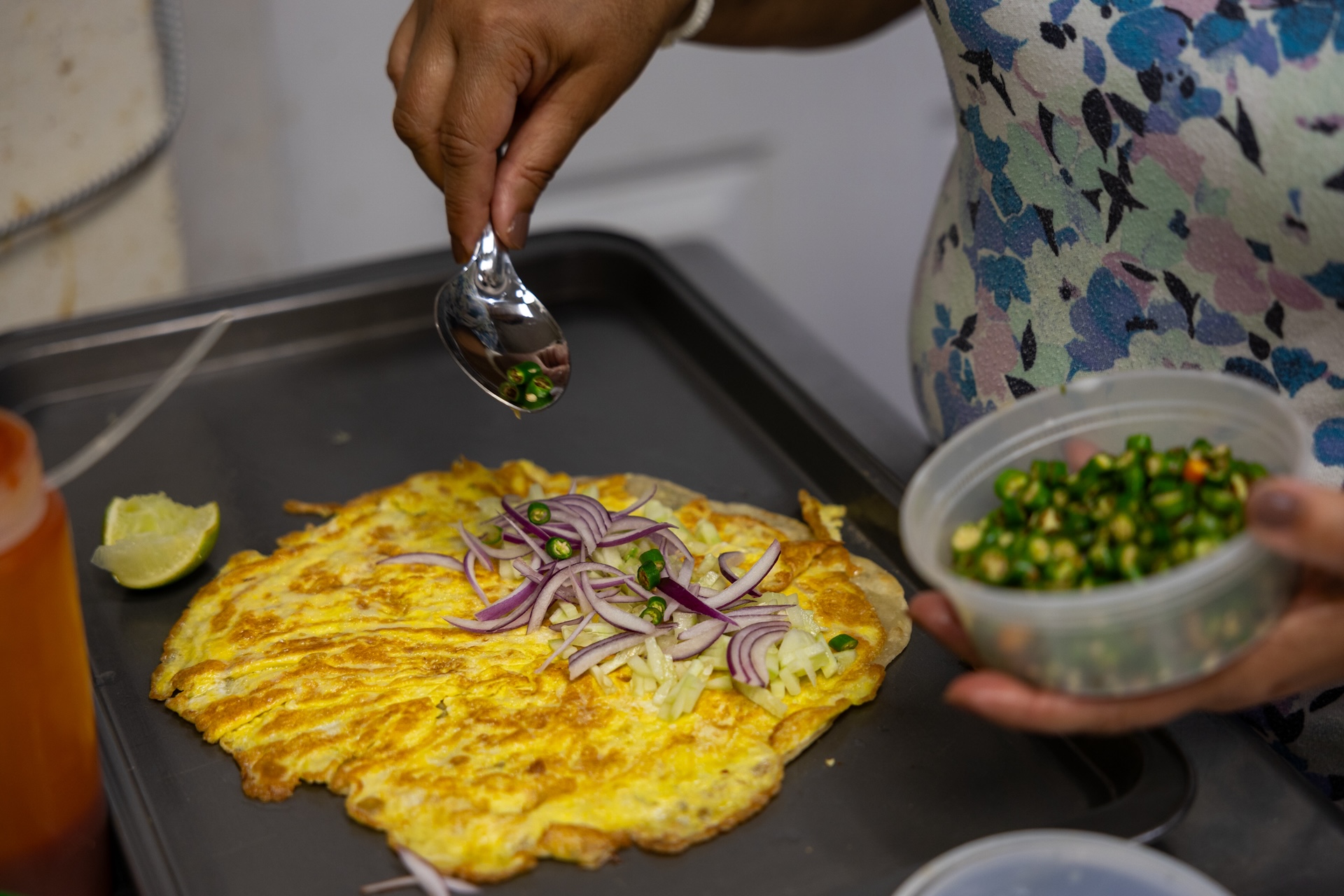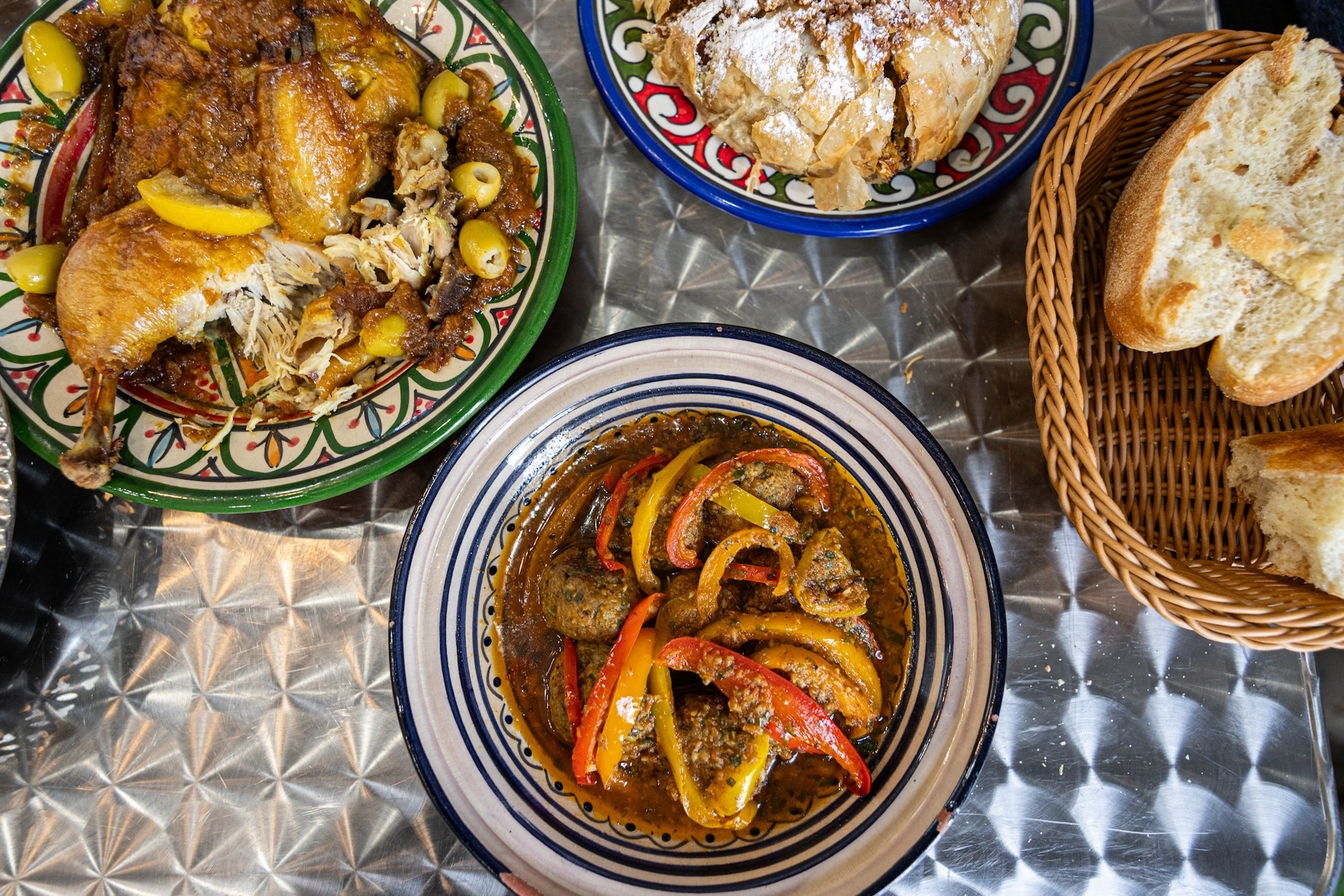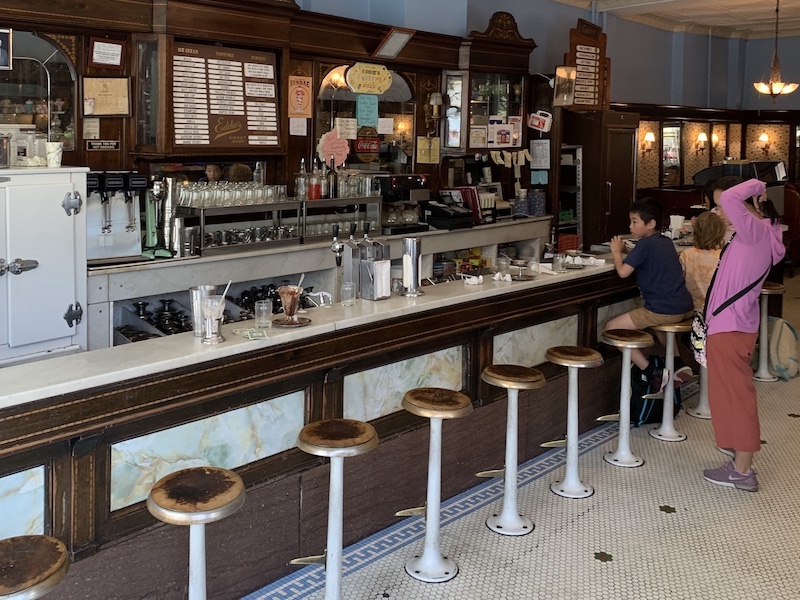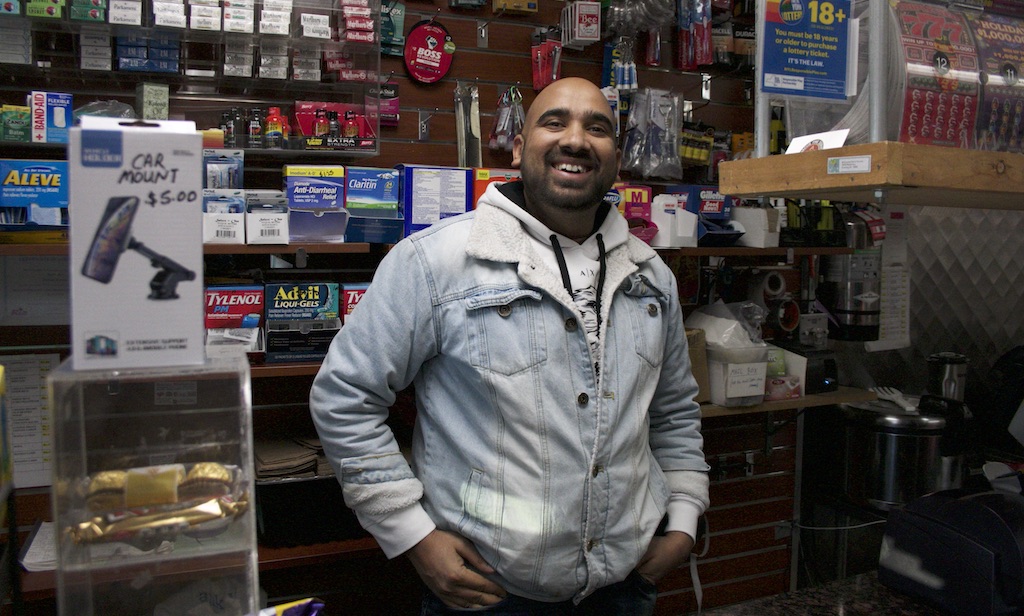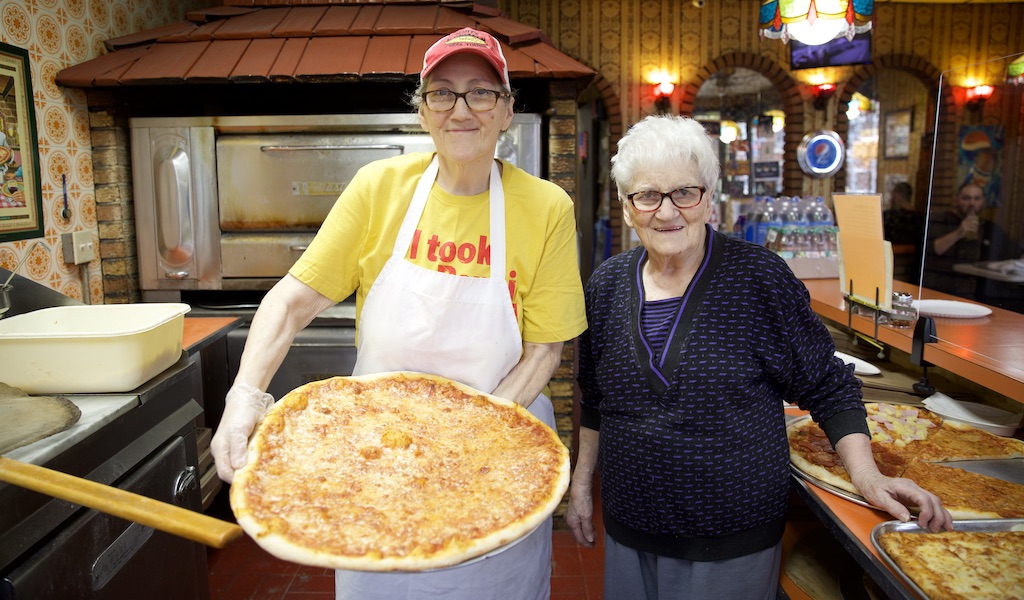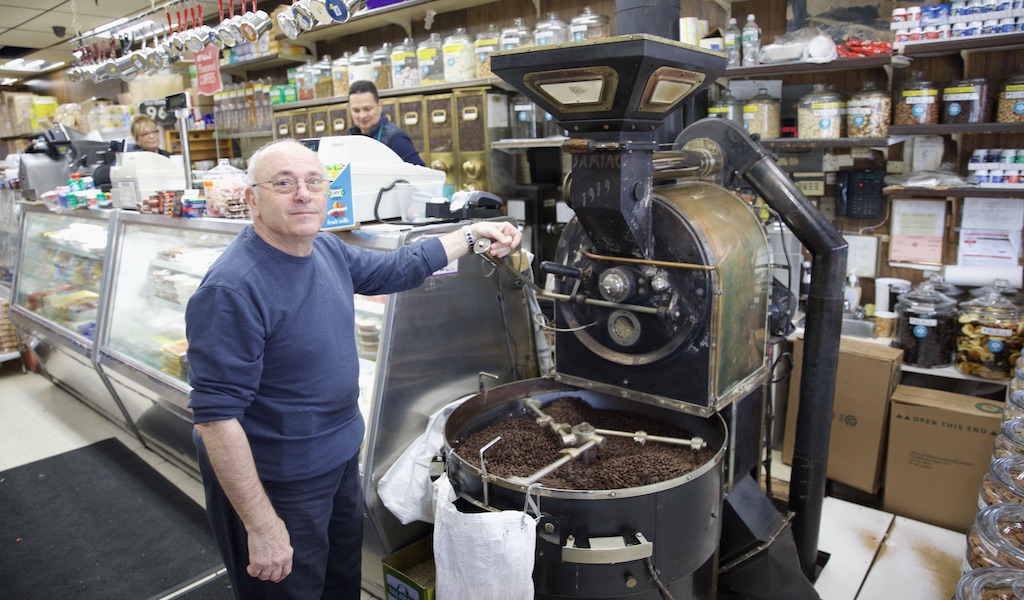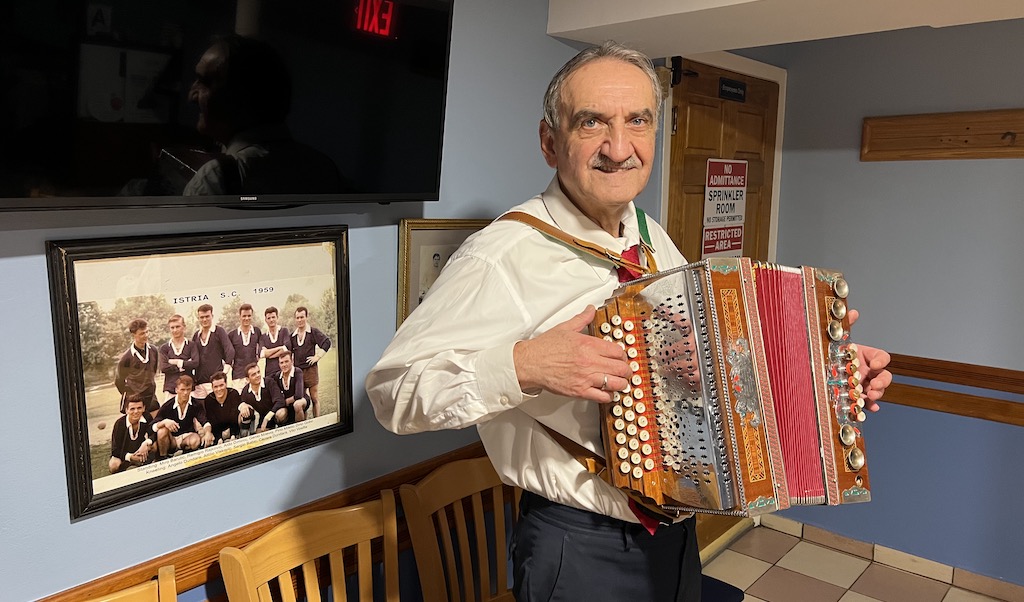We can't find the internet
Attempting to reconnect
Something went wrong!
Hang in there while we get back on track
Search results for "Ike Allen"
Queens
Moroccan Bites by Siham: Tiny Kitchen, Big Flavor
Moroccan cuisine, at least items like couscous and harissa, can today be found in nearly any supermarket. But New York, with all its culinary diversity, has never had a real Moroccan restaurant scene. The recently launched Moroccan Bites by Siham goes a long way toward filling that void. “[When I moved to New York] I would have loved to have a restaurant that I could be proud of and tell people about, but sadly, there was not,” says Rabat-born Redouan Lazrek, the restaurant’s co-owner and husband of Siham Bourhane, the chef.
Read moreQueens
Eddie’s Sweet Shop: Nostalgia, by the Scoopful
When a streetcar ran down Queens’ Metropolitan Avenue in the first half of the 20th century, soda fountains like Eddie’s Sweet Shop were commonplace in big cities and small towns across America. Today, this hundred-year-old corner gem on Metropolitan in the leafy, Tudor-style enclave of Forest Hills is one of the last of its kind left in the country, and it certainly shows its vintage. On summer afternoons, Eddie’s still fills up with crowds of happy Queens kids, and the diversity of the clientele reminds you that fortunately, it’s not the 1920s anymore. The shop itself, though, is practically unchanged – every piece of equipment behind the counter, from the shiny Frigidaire to the tiny metal cabinet hand-painted with the words “hot fudge,” could be from a museum.
Read moreQueens
Mount Everest Deli: The Momo Bodega
Mount Everest Deli may appear, to many of its customers, interchangeable with its neighbors – Globe Smoke & Convenience, Seneca Deli Corp., or any of the dozens of Ridgewood bodegas that are instantly familiar to any New Yorker. Passersby on Myrtle Avenue dash in for a pack of cigarettes, a tube of off-brand super glue, or a turkey bacon-egg-and-cheese on a roll. But inhale deeply while shopping there and you’ll smell masala. Peek behind the deli counter and you’ll see momos – Himalayan dumplings – tumbling onto the griddle. Mount Everest isn’t just a corner store. It’s a distinctive, tradition-bending urban Nepalese restaurant.
Read moreQueens
John’s Pizzeria: A Slice of Nostalgia
The eye-catching vintage sign proclaims: “ohn’s Pizzeria.” The letters in “Pizzeria” are in the bold carnivalesque font that decorates many decades-old slice joints in New York. As for “ohn’s,” it’s missing a one-of-a-kind flourishing cursive capital letter. “The J fell off,” says Susan Bagali, while ladling sauce onto a Sicilian pie behind the counter. “I called three companies and none of them could fix it right. I don’t wanna change it at all.” John’s Pizzeria’s unchanged appearance is exactly what first caught our eye while the corner restaurant was shuttered during the entire Covid-19 pandemic – for good, we worried.
Read moreQueens
Carmel Grocery: The Israeli Zabar’s
Few places in New York are home to such a diverse cross section of the Jewish diaspora as Forest Hills, especially the broad stretch of 108th Street tucked behind the imposing apartment blocks that abut Queens Boulevard. If you stand in front of Carmel Grocery, a plain-looking shop at the heart of the modest business district, you’re likely to hear Hebrew, Bukhori, Russian, Georgian and Yiddish along with the thick Queens accents of the neighborhood’s longtime Ashkenazi Americans. And many of the voices you hear are probably on their way into the grocery, lured by the smell of freshly roasted coffee.
Read moreQueens
Istria Sport Club: Authentic Adriatic
“Did someone send you?” you might be asked, somewhat jarringly, if you find your way down the basement stairs and past the life-sized goat statue that marks the entrance to the Istria Sport Club. The restaurant, on a nondescript stretch of Astoria Boulevard, doesn’t advertise its presence. Its brick storefront looks more like an office or a private social club, which, at least nominally, it is. But any fears that we had stumbled into the wrong place were soon assuaged. “First time here? I’ll take care of you,” said Zlatko Ranic, who manages the restaurant attached to the 64-year-old soccer club. We soon felt right at home.
Read more